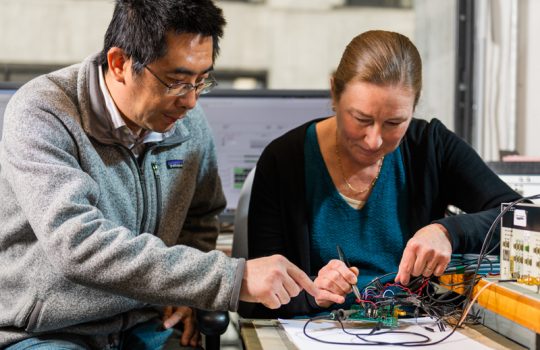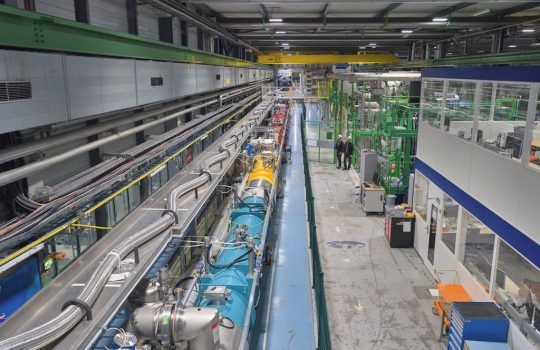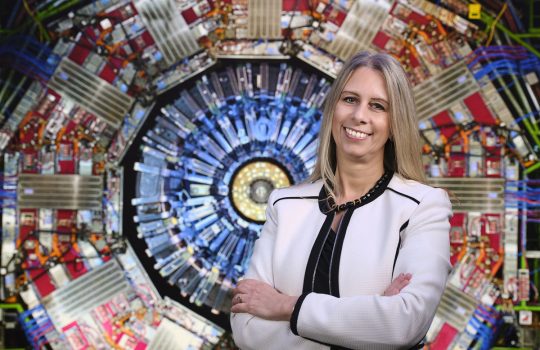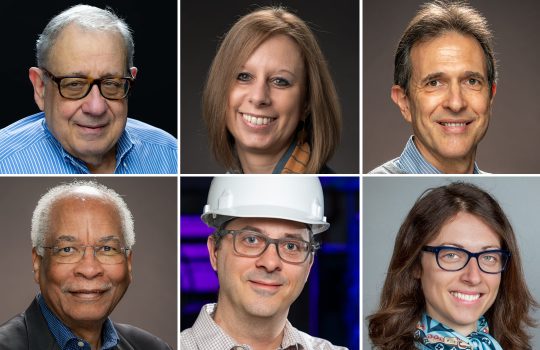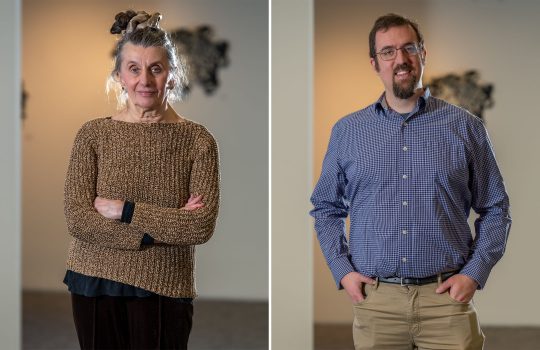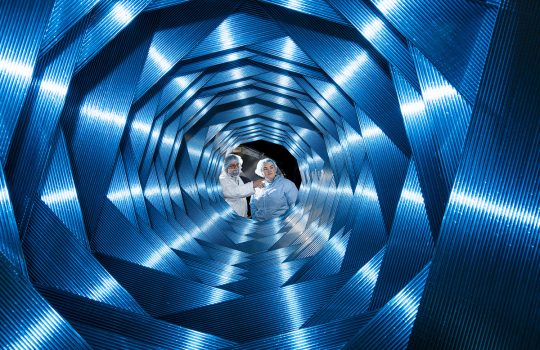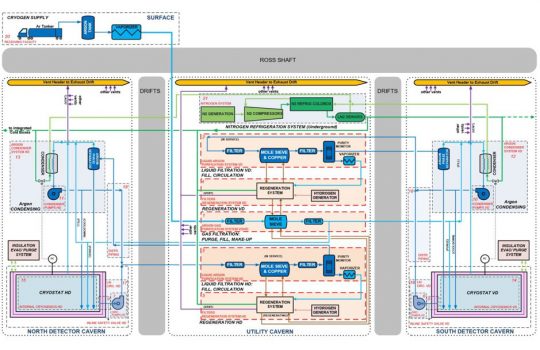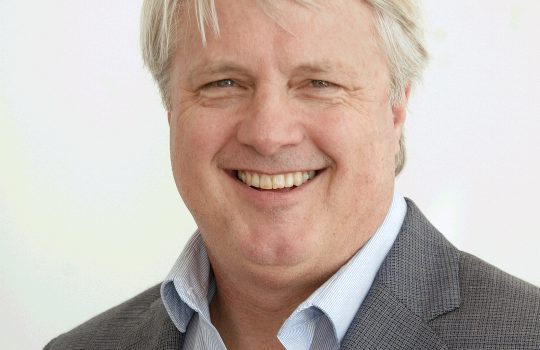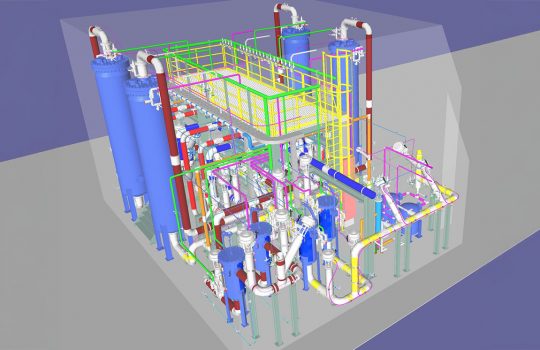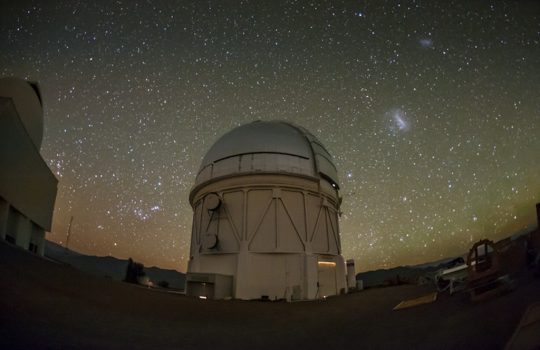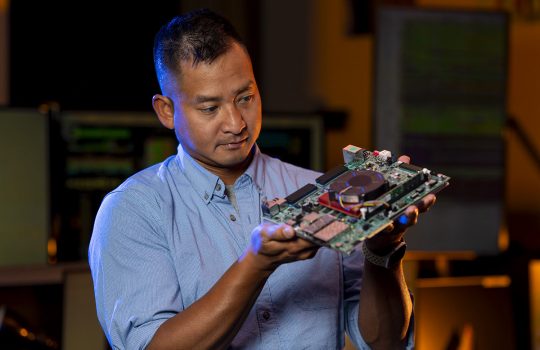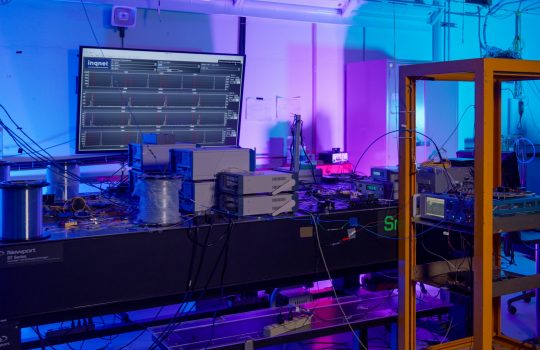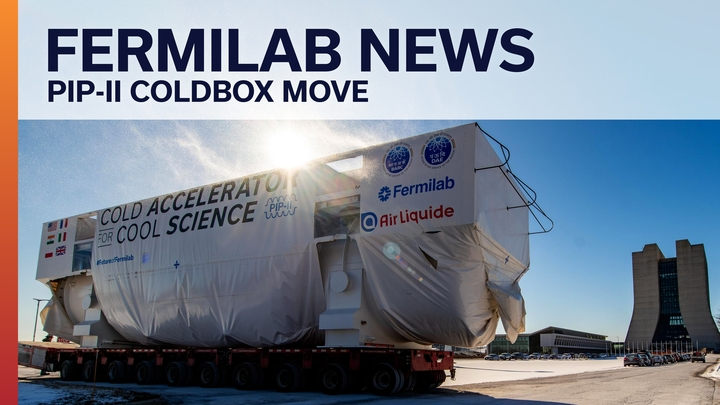Featured
DOE national quantum research centers reach breakthrough towards building scalable quantum computers
A partnership between the Quantum Science Center and the Quantum Systems Accelerator, two U.S. Department of Energy national quantum information science research centers, has enabled a breakthrough by Fermilab and MIT Lincoln Laboratory. Researchers used cryoelectronics to control ion traps, a key step toward realizing scalable quantum computers.
Recent news
Trending topics
Fermilab researchers supercharge neural networks, boosting potential of AI to revolutionize particle physics
Fermilab researchers have provided expertise and leadership in developing an open-source framework that enables the design of hardware capable of making split-second decisions. These advances aim to prioritize the enormous volumes of data produced by some of humanity’s most ambitious physics experiments.
Keeping liquid argon chilled underground is one of DUNE’s coolest challenges
The Deep Underground Neutrino Experiment is building the largest underground cryogenic system ever attempted to support its massive liquid-argon detectors.
SQMS Center team from Fermilab and NYU Langone advance in NIH Quantum Computing Challenge
Magnetic resonance imaging, commonly known as MRI, is a cornerstone of modern medical diagnostics. Now, a collaboration from Fermilab and NYU Langone Health, both partners in the Superconducting Quantum Materials and Systems Center, takes this technology a step further with Quantitative MRI.
‘Squeezed light’ technology could accelerate path to quantum networking
Scientists at Fermilab and Caltech have demonstrated the feasibility of their method of using squeezed light to dramatically increase the rate at which quantum networks can generate entangled particle pairs over long distances. This advance addresses a critical bottleneck in building large-scale quantum networks.
Featured video
In the news
HiLumi LHC: full-scale tests start
CERN scientists have reached a crucial milestone in the advancement of the HiLumi LHC project. Fermilab developed and shipped five cryoassemblies containing niobium-tin magnets for use in the High-Luminosity Large Hadron Collider upgrade at CERN.
US: Bus-sized detector rules out sterile neutrino’s existence with 95% certainty
A bus-sized neutrino detector housed at the Fermilab has investigated the anomalies of previous experiments involving sterile neutrinos.
Quantum compilation speeds up 100x, bringing practical quantum computers closer
The Fermilab developed the QICK quantum control system links up with QASMTrans quantum compilation framework to bridge the gap between logical circuits and the underlying hardware.
AI boosts nuclear physics calculations for stars
Fermilab scientists are part of a team of researchers tackling the complex challenge of understanding atomic nuclei and neutron stars by modelling the interactions of protons and neutrons.
Social media
More from particle physics

A communication resource from the world’s particle physics laboratories.

